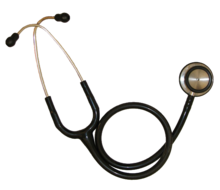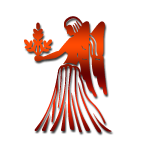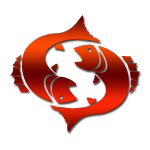Paid Services
Medical Astrology Simplified

By S N Rao
Medical astrology is a science that demands a union of knowledge of both astrology and medicine. Ideally, it takes years of acquiring astrological expertise and then becoming totally familiar with physiology and anatomy to qualify as a medical astrologer who with the cooperation of a physician can accurately diagnose diseases and advise clients on the best procedures for regaining health. But in varying degrees the tools of medical astrology are available to all people interested in the science, even those with only fundamental knowledge of astrology and/or medicine.
Astrology can be used to determine any individual's potential weak spots. In other words, by examining the planetary combinations and placements in a natal or progressed chart, a medical astrologer can ascertain likely psychological or physical weaknesses that may be causing disease. The medical astrologer then can advise the client on the appropriate tests necessary to verify the astrological speculations. After a physician's tests have confirmed the diagnosis together the medical astrologer and doctor can outline the best diet and program of nutritional supplements for the individual to regain good health. Medical astrology is in its infancy, and no medical astrologer can work alone, nothing can be assumed without verification from a physician. It is very necessary, therefore, for the client to develop a close, working relationship with the physician in charge and the astrologer.
In medical astrology the planets indicate the functions or malfunctions of specific organs or systems in the body, depending on what sign the planet is posited in at birth. For instance, Mars always implies a potential area of acute inflammation, a flaring up of a specific condition. If Mars is in Gemini, there could be an acute ailment involving any of the Gemini-ruled areas such as the tubes of the body. Which tube is affected would have to be discerned by careful analysis of the entire chart and the person's past and present medical data: if a woman has experienced uterine complaints, there could be an infection involving one of the Fallopian tubes; or if the person has a past history of lung trouble, there could a flare-up of bronchial irritation or pleurisy. The planets, then, indicate how a specific organ or function of the body will be affected.
Basically any planet that occupies the 6th house / rules the 6th house plays an important part in the health of the native. Any malefic aspect from these planets to the signs in which they occupy / they aspect are the areas that are likely to be affected. Transit plays a crucial role in determining the sickness and the likely areas where the health would be affected. Most importantly if the dasha – antardasha of these planets are activated then the health is a cause for concern.
Sun
No number of words can express the Sun's importance to everyday bodily functioning. The Sun should never be overlooked in a natal chart because of its vital importance and energy to a person's entire well-being. All inherent vitality, energy or prana flows through the Sun. The sign it is found in will tell us how the energies are being dispensed within the given lifetime.
To have a strong, pulsing life force—the heart—we need sufficient vitamin A. If a person is not getting enough of this important vitamin, there will be a short somewhere in the circuitry, and he or she will possibly develop a heart ailment (even though most heart problems are found in Fixed signs). Insufficient vitamin A can cause a variety of heart ailments.
Moon
The position of the Moon in a natal chart will help establish a person's emotional needs. Good health is not just a matter of eating the correct foods; it is a interweaving of diet, emotions and mental attitudes. If emotions are misdirected, suppressed or repressed, they can build up and create trouble in the subconscious mind. It is the equivalent to a viral microbe entering the body and hibernating until the time that it erupts into an ailment. If emotions such as guilt, anger and jealousy are not properly dealt with, they too can cause illnesses.
Moon regulates the bodily fluids, its transiting position may also determine whether or not there is a need for riboflavin. For instance, the fluid in the skull is at its highest at full Moon, exerting pressure on the brain and potentially making a person in need of riboflavin more irritable, more easily upset or more sensitive. So, if a person is suffering from a deficiency of riboflavin symptoms may be more severe about five days before the full Moon, and the deficiency may lessen toward the new Moon.
Mercury
Mercury rules the nervous system, its placement in a natal chart can indicate mental attitudes, and inflexible attitudes can stress the body. Although mental exhaustion is not normally manifested with afflicted Mercury the nervous system may take a severe buffeting, perhaps resulting in nervousness, tension and the inability to relax. Such people need to control their worrying, allowing themselves to worry only when they haven't done everything within their powers to change the outcome. The proper attitudes are important for well-being, and if we mishandle our emotions we can become sick.
Mercury is also closely associated with the thyroid, and it seems to have significance in thyroid problems with or without the influence of Taurus, co-ruler of the thyroid. When transiting Mercury is retrograde, it is probably a poor time to schedule an operation. During Mercury retrograde the wrong drugs might be given or the dosage may be wrong for the individual. Misunderstandings may occur between doctors, doctor and nurses, nurses and patient or doctor and patient.
Venus
Venus helps regulate the throat, thyroid and kidneys. The planet also has dominion over half the circulatory system — the venous supply. And it is concerned with skin texture, its beauty and flawless character. Venus can play a part in diseases of the blood. It rules the venous circulatory system—an intricate series of minute venules of blood vessels that start out as being barely visible and then branch out.
An individual with a prominent Venus may go on gorging on sweets and gaining weight. Venus dictates how we feel about ourselves. If we like ourselves, we'll probably have a good diet; if we dislike ourselves, we tend to abuse our bodies with less than nutritious foods.
Mars
Mars is the energizer and stimulator of all aspects of our bodies. Whereas the Sun is our basic engine, Mars is the gas that fuels it. It is the key planet associated with our physical activities, our energy levels. It rules over the muscles and the adrenal glands.
Depending on its placement in a natal chart, Mars can indicate how active each of us is. For instance, in a fire (Aries, Leo, Sagittarius) sign Mars may produce extraordinary athletes or aggressive people who must temper their workaholic tendencies with rest in between their furious spurts of activity. Mars in an air (Gemini, Libra, Aquarius) sign can mean great mental energies: these individuals may be cerebral, seeming to grasp scientific theories or equations with ease, but they must be on guard against mental exhaustion and nerve-related breakdowns. Mars in an earth (Taurus, Virgo, Capricorn) sign often produces people who prefer the sport of sitting in overstuffed arm chairs. And Mars seems least happy in a water (Cancer, Scorpio, Pisces) sign: energy tends to be in short supply with these people, and they need to monitor just how much they can do without being exhausted. Since everyone needs exercise, Mars will help the medical astrologer evaluate how much and what kind each person needs. This planet is also very important in indicating how quickly individuals can bounce back from sickness. It seems to work best in the fire or air signs. In earth or water signs it usually indicates slow recuperation. In terms of health problems an activated Mars can mean inflammation, rapid temperature increase and acute onset of ailments. Depending on which sign it's located in, Mars can also indicate what may be hyper functioning—in other words, that part of the body, whether it is tissue, bone or organ, that is operating fast and possibly overworking itself so that it will wear out more quickly than other parts. Mars has dominion over blood: it can be involved in various blood disorders, such as anemia.
Jupiter
The word expansion is usually applied to Jupiter. In medical terms Jupiterian expansion means overeating and lack of control. Whereas Venus rules our taste buds and how we react to certain foods, Jupiter tends to make for gluttons. Jupiter-ruled people may over eat rich foods that are usually high in acid
Jupiter also rules fats in the body. Astrological-medical research indicates that people who have sugar-related problems usually exhibit a hard-aspected Jupiter, which can indicate a possible deficiency of chromium, a mineral also concerned with synthesis of fatty acids and cholesterol as well as helping to prevent arteries from hardening.
Saturn
Saturn should be scrutinized closely in any natal chart. Most ailments that manifest are usually associated with this planet. Saturn has dominion over the bone structures of our bodies, including teeth and ears. The position of natal, progressed or transiting Saturn also has an effect on the quality of one's skin.
For example, whatever sign Saturn is found in at birth might determine what organ, tissue or area of the body is potentially hypo functioning— that is, sluggish and not working up to normal expectation. If Saturn is found retrograde, the chances of that part of the body malfunctioning are increased. The transits of Saturn can also indicate medical problems. The planet takes 29 ½ years to make one complete orbit about the Sun. We "feel" its presence about every seven years, when Saturn's main job seems to be to crystallize any problems or insights. Medical problems, diseases and ailments of chronic duration, which are long in building and manifesting themselves and then require a long healing or convalescent period, also tend to crop up during these critical years of the Saturn cycle. One of the events partially attributable to the transits of Saturn is the midlife crisis, usually happening between the 42nd and 49th years. During this time, at about 45, the aging process, another Saturn-ruled phenomenon, takes place: specifically, the breakdown and eventual destruction of collagen occurs. If medical ailments show up at about the same time, a person can undergo a period of great trial: the mental attitudes may be so poor that the ability to get well is impaired, and the disease may linger chronically. Proper maintenance with vitamin C can help turn the tide of this crisis. Vitamin C does not guarantee a sickness-free life, but medical research has shown that this vitamin is as necessary as life itself. In particular, vitamin C helps form collagen to keep the cells of proper size and shape so that they may go about their business of maintaining bodily health.
 Best quality gemstones with assurance of AstroCAMP.com More
Best quality gemstones with assurance of AstroCAMP.com More
 Take advantage of Yantra with assurance of AstroCAMP.com More
Take advantage of Yantra with assurance of AstroCAMP.com More
 Yantra to pacify planets and have a happy life .. get from AstroCAMP.com More
Yantra to pacify planets and have a happy life .. get from AstroCAMP.com More
 Best quality Rudraksh with assurance of AstroCAMP.com More
Best quality Rudraksh with assurance of AstroCAMP.com More
Get your personalised horoscope based on your sign.



















